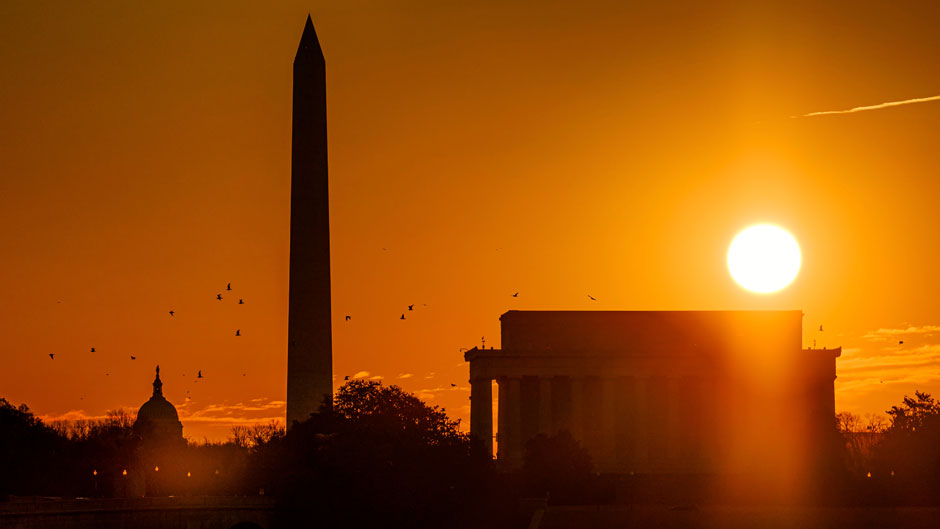Like clockwork, most United States residents have grown accustomed to toggling their timepieces back and forth in the fall and spring seasons to adjust to standard and daylight saving time.
On March 15, the Sunshine Protection Act, a proposed federal law that would make U.S. Daylight Saving Time permanent and end setting clocks back an hour in the fall was unanimously passed by the U.S. Senate on a voice vote. Though the bill’s passage in the U.S. House is uncertain, University of Miami experts share their views as its outcome hangs in the balance.
Sleep expert Girardin Jean-Louis, founder and director of the Translational Sleep and Circadian Sciences Center the University of Miami Miller School of Medicine, is firm on his stance that if residents want a permanent change, perpetual standard time would be most desirable for our health.
Jean-Louis said that under standard time—when mornings are brighter—our superchiasmatic nucleus, or circadian clock, is easier to be controlled. With daylight saving time, it’s more difficult for the human body to regulate, simply because of our biology makeup.
“When you are switching between standard and daylight saving time, there are problems in terms of mental health, as well a physical health issues,” said Jean-Louis, noting that losing an hour of sleep may not seem like a big deal but the back and forth switching takes a toll on our overall sleep health and bodies.
Brian McNoldy, senior research associate and tropical cyclone expert at the Rosenstiel School of Marine and Atmospheric Science, wants everyone to know that daylight saving time doesn’t increase the amount of daylight in a day.
“Even the name of the bill, Sunshine Protection Act, is faulty and misleading because nothing about it ‘protects’ sunshine or daylight and the Earth will still keep rotating at the same speed,” he explained.
McNoldy charted sunrise and sunset times on his Twitter account, noting that if daylight saving time is year-round, sunrise in mid-January in Miami would occur at 8:09 a.m. He tweeted that “long dark mornings are the worst for mental health.”
Many supporters of the bill, including Florida Republican Sen. Marco Rubio, believe that the change would give children the opportunity to play outdoors later and reduce seasonal depression.
“Are we saving money, the answer is yes,” said Jean-Louis. “But some of us as health care professionals are concerned about the health aspects. There has been a slew of research and evidence that shows people are more prone to heart attacks and other adverse outcomes in terms of physical and mental health.”
The sleep expert explained how seasonal depression in many ways has to do with light exposure and melatonin secretion. The deeper we move into winter, our exposure to sunlight diminishes because we don’t spend as much time outdoors because its cold—of course, here in Florida its bit different.
“As you get exposed to less light, there’s more melatonin being secreted, and the more melatonin you have, the more likely you are to have seasonal depression or symptoms of sadness,” said Jean-Louis. Both men and women experience it, he added, but it’s more prevalent in women.
According to research at the Translational Sleep and Circadian Sciences Center, members in the Black and brown communities are routinely getting less sleep because of environmental and socioeconomic matters. In turn, this has led to increased risks for cardiometabolic conditions and early death.
“To start, Black people are sleeping about 30 minutes less,” said Jean-Louis. “So, we talk about America as a whole suffering, that’s true. But Black folks are suffering even more and are more at risk of those metabolic problems, cardiac defects, mental health issues, and the likelihood of accidents—all those things are even more prevalent and more problematic for Black folks.”
To combat this disparity, Judite Blanc, research assistant professor for the center, and other team members, visit churches, hair salons, barbershops, parks, and other areas to spread the word about healthy sleep hygiene.
Some of Jean-Louis and Blanc’s suggestions include waking up an hour earlier and taking a walk facing east so that you have exposure to the sun as it rises, staying physically active throughout the day, and getting seven to eight hours of sleep to help reduce risk of cognitive decline.

